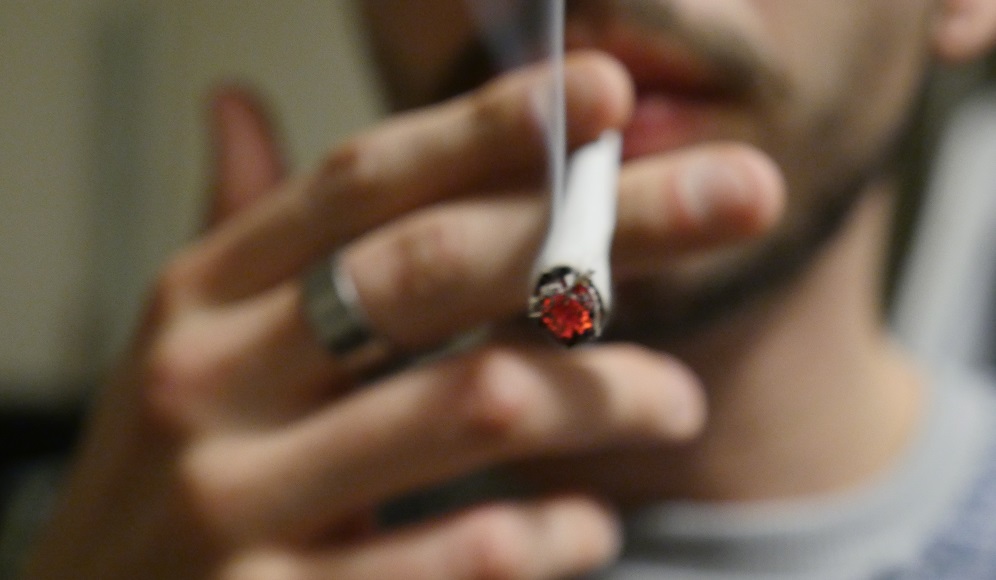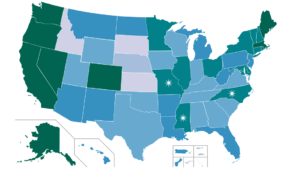By Michael Knodt for marijuana.com
A recent announcement by the Spanish Constitutional Court has provided some relief to cannabis social club members in Spain, but the fundamental issue of federal prohibition of marijuana remains. The same court recently annulled a 2015 ruling that convicted five members of the cannabis social club (CSC) Ebers in Bilbao of drug trafficking. The Supreme Court of Spain had condemned the treasurer, the secretary, and two members of the Bask cannabis social club to imprisonment and fines, despite the constitutional court’s acknowledgment that no personal profit was made.
A few weeks later, the Supreme Court declared a prison sentence of up to one year and eight months and fines of 250,000 euros for the chairman and the secretary of Bilbao-based Pannagh cannabis social club in addition to two members who had been found packaging the club’s harvest. The legal basis for the operation of cannabis social clubs in Spain is a liberal narcotic act that allows consumption and cultivation for “personal use” in a “private environment.” The court pointed out in its decision that the club, with more than 300 members, could no longer be considered private.
The recent pronouncement partially protects the members of the association and annuls the 2015 sentence, forcing the Supreme Court to repeat the trial — and similar pending cases like the one mentioned above are likely to follow the same path. But what seems to be a victory at first glance could haunt the industry down the road. The constitutional court did not protect the club and its members for the reasons of legality. Rather, the annulment is based on the lack of the accused’s defencelessness in one of the instances.
The constitutional judges criticised the Supreme Court for not accepting the defence’s thesis that they acted in this way because they believed they were following the law — what is known as a prohibition error — “without giving the appellants the possibility of being heard personally.” But the judges also emphasised that cannabis prohibition is a federal concern and cannot be circumnavigated through private clubs, even if the clubs have the support of the respective local authorities, as in the case in Bask country or Catalonia.
What makes a cannabis social club private?

The Nectar Club in Barcelona, Spain.
It’s not clearly defined in Spanish law what “personal use” means or what, exactly, constitutes a private environment. More than 10 years ago, cannabis activists used that gap in wording to found the first clubs in Bask country and were backed by local courts verdicts there soon after. So before the supreme or the constitutional court ever ruled about cannabis social clubs in 2015, thousands of these associations had been established.
After the most recent verdict, every activist’s hope that regulation would be accomplished by the legislature at the national level vanished completely. But the verdict will not have the far-reaching consequences of continuous raids and closures that some skeptics fear.
Iker Val Valverde, founder of Ganjazz Art Club Association, Eusfac! (Bask Federation of Cannabis Users) and Fac! (Federal Association of Cannabis Users), said he believes social clubs will continue moving forward.
“I think the CSC-movement will still continue founding new clubs. At least in the rest of Spain, except in Barcelona with its big Clubs like HQ or La Kalada, the people are converting to smaller cannabis social clubs,” he said. “For example, just on the Canary Islands there are around 150 small CSC operating. In my personal opinion, the CSC-model will continue under tougher conditions with a notable increase in the juridic insecurity. Without a new national regulation law for cannabis, in the long run, cannabis social clubs will end in a dead end. Let’s hope Regulación Responsable can move things.”
Regulación Responsable is a group of citizens, nongovernmental organisations, and social organisations that advocate for regulation of the production and consumption of cannabis in Spain. Their initiative is supported by numerous social movements and collectives in Spain working in the field of drug addiction or harm reduction with broad representation at the state level. Regulación Responsable started the fundraising campaign to finance the current cases and recently announced it will appeal to the European Court of Human Rights to enforce a European landmark decision on cannabis social clubs.
Marijuana.com interviewed Héctor Brotons Albert about the consequences of the most recent CSC verdicts. Albert is the head of a Barcelona-based law firm, specialising in criminal law, public health, cannabis issues, as well as administrative, civil, and labor law.
MJ: In your opinion, which consequences will they have on the existing CSCs in Spain?
HA: The Spanish Constitutional Court verdict doesn’t close the door to the creation of other CSCs in Spain. Just as the Supreme Court’s verdict, it only addresses the two CSCs involved in the rulings. The problem is that the constitutional court sentence, as the Supreme Court sentence did, simply says that the activities of this CSC cannot be included in a sharing consumption doctrine. We argue in another constitutional appeal (Pannagh CSC) that hasn’t been resolved yet, that this doctrine was created 20 years ago to resolve other social problems and now we have another social reality that needs another doctrine: The CSC doctrine.
Is the general model endangered?
The general model is not endangered because there are a lot of people in Spain who believe in CSCs as a way to protect their health and as a way to normalise their cannabis consumption. On the other hand, CSCs should take into account that they need to establish a mechanism to protect [their]members’ health [and keep membership properly regulated]. The problem is that the Supreme Court and the constitutional court didn’t establish requisites to determine which CSCs have committed a crime and which have not, so the CSC members don’t have enough judicial security.
Will clubs be closed as a direct consequence of the new verdicts?
I think some CSC members that think they’re committing a crime will close, but there will be a lot of CSCs that will think they’re minimising cannabis risk and working in the right way, and they won’t close. On the other hand, two commissions have been created in the Parliament to study therapeutic cannabis and recreational cannabis, and they are going to say if CSCs are the right way to minimise cannabis risk and allow people to grow their own cannabis in an association.
—
This article was originally published on marijuana.com. Read the original article.











































































































